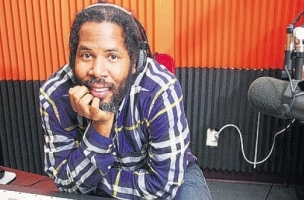Our News
We are losing dancehall
NAVIGATING Prime Time, the final panel discussion on the closing day of the third annual Jamaica Music Festival was an intense affair.
Held Sunday at the University of the West Indies’s Neville Hall Lecture Theatre, New York-based promoter Garfield ‘Chin’ Bourne told a small gathering of music enthusiasts that for almost two decades, Jamaican dancehall has not produced anything fresh, hence it has lost its appeal.
“So, we are losing dancehall overseas…What is happening to dancehall overseas is everyone is graduating, but no one is coming in. So now when you go to these dances, you are seeing less and less of a crowd…we are losing the culture of dancehall…,” declared Bourne, manager of Irish and Chin, a leading entertainment company.
The host of a weekly six-hour radio programme canvassing the tri-state area of New York, New Jersey and Connecticut, Bourne added that Jamaican artistes and music producers do not expose their music properly overseas.
“Social media is a great tool, but it make a lot of us far too comfortable. I come to Jamaica and some of the songs mi hear a tear up Jamaica, mi nuh know dem. It’s just the Jamaican-based hype. Jamaica is where the talent and fame is, but the Diaspora is where the money is. We need to be a lot more connected,” said Bourne.
Industry veteran, Olivia ‘Babsy’ Grange, who spoke on the panel ‘Music and Social Change’, agreed with Bourne.
“We are losing a generation in the Diaspora because the music is not moving. So they are creating their own music,” she said.
Earlier, Winford Williams, host of the popular Onstage show on CVM Television, stated that for Jamaican music to get proper mainstream attention, there needs to be more media owners.
Entertainment attorney Kendall Minter emphasised the role of education in creating music professionals for a sustainable industry, especially in the critical area of publishing.
“If you are not registered, you are not paid. If you are not registered with the performing rights societies your money will be left on the table. To support this stream of income you have to do your homework. It’s about taking care of your business. This is the music business”, Minter advised.
Deejay Assassin admitted that early in his career he did not pay enough attention to the business aspect of the music industry.
“I feel guilty personally for not paying attention to a lot of things. I fell in love with music early and at that time it was about loving music. Trapped in what I love and not paying attention to what I have to do,” he said.
The Jamaica Music Conference opened on November 20.














